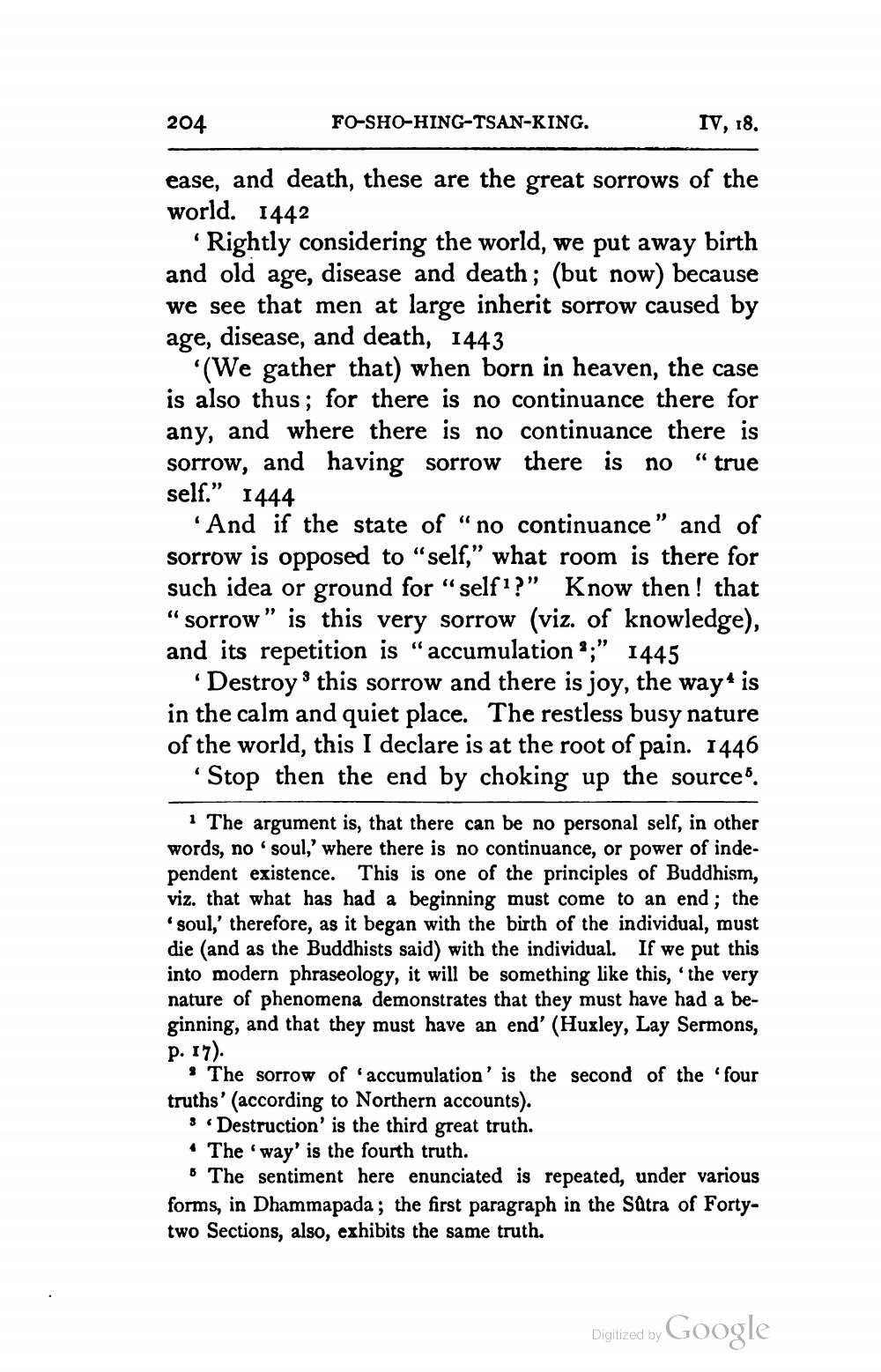________________
204
FO-SHO-HING-TSAN-KING.
IV, 18.
ease, and death, these are the great sorrows of the world. 1442
Rightly considering the world, we put away birth and old age, disease and death ; (but now) because we see that men at large inherit sorrow caused by age, disease, and death, 1443
(We gather that when born in heaven, the case is also thus; for there is no continuance there for any, and where there is no continuance there is sorrow, and having sorrow there is no "true self.” 1444
And if the state of “no continuance" and of sorrow is opposed to “self,” what room is there for such idea or ground for “self 1?" Know then! that “sorrow" is this very sorrow (viz. of knowledge), and its repetition is “accumulation ?;" 1445
'Destroy this sorrow and there is joy, the way' is in the calm and quiet place. The restless busy nature of the world, this I declare is at the root of pain. 1446
Stop then the end by choking up the source'.
1 The argument is, that there can be no personal self, in other words, no 'soul,' where there is no continuance, or power of independent existence. This is one of the principles of Buddhism, viz. that what has had a beginning must come to an end; the
soul,' therefore, as it began with the birth of the individual, must die (and as the Buddhists said) with the individual. If we put this into modern phraseology, it will be something like this, the very nature of phenomena demonstrates that they must have had a beginning, and that they must have an end' (Huxley, Lay Sermons, p. 17).
9 The sorrow of accumulation' is the second of the 'four truths' (according to Northern accounts).
3.Destruction' is the third great truth. • The 'way' is the fourth truth.
6 The sentiment here enunciated is repeated, under various forms, in Dhammapada; the first paragraph in the Satra of Fortytwo Sections, also, exhibits the same truth.
Digitized by Google




